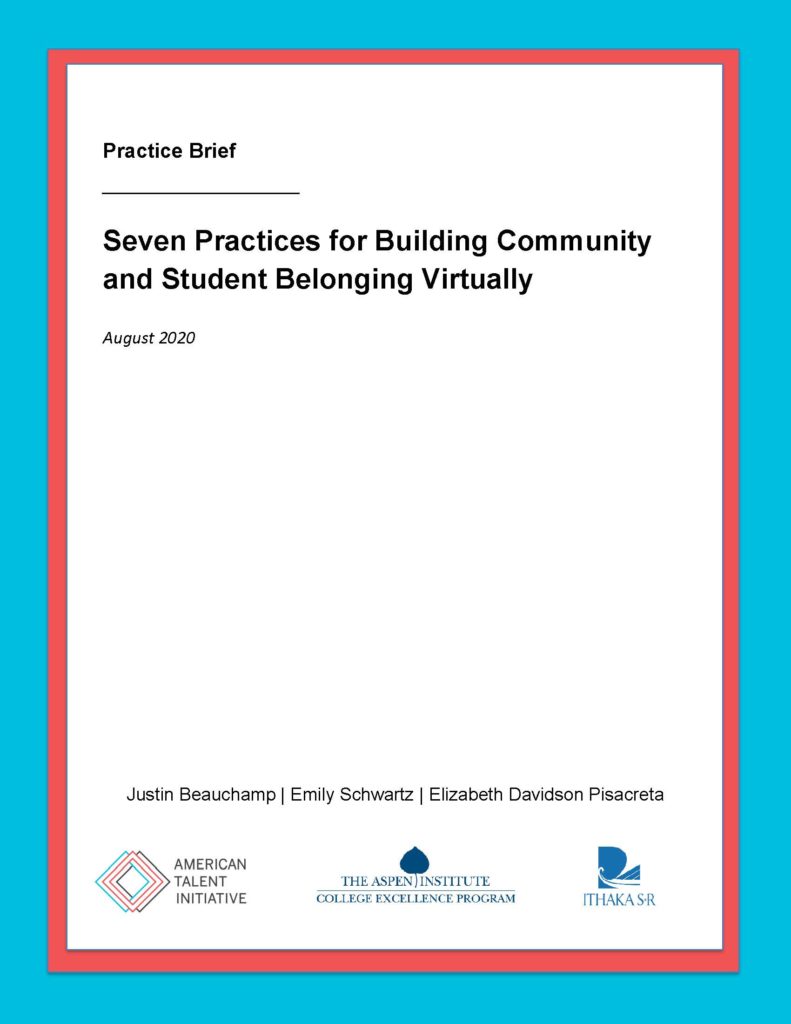ATI’s latest practice brief outlines a set of seven practices that institutions can adopt to ensure students maintain a sense of community and belonging, even in a largely virtual climate. Decades of research has demonstrated that students, especially those from lower-income and first-generation backgrounds as well as communities of color, who have a strong sense of belonging at their institutions are more likely to persist and graduate. While most colleges and universities traditionally provide in-person programming to strengthen bonds between students and build community on-campus, many institutions had to reimagine these initiatives after abruptly closing their campuses in spring 2020 in response to the spread of COVID-19.
The following brief addresses a consistent theme that emerged from student stories and survey data throughout spring and summer 2020: a growing disconnect from their college experience. Restrictions on in-person interactions between students, staff, and faculty are only likely to persist through the fall 2020 and spring 2021 semesters, making the issue of belonging an increasingly pressing issue to address. As such, colleges and universities across the country need to develop a comprehensive strategy for employing mechanisms to support students remotely and offer virtual activities that promote belonging.
This practice brief features seven (7) practices that are essential to that comprehensive strategy, drawing from both the research literature and reflections from administrative staff at six colleges and universities on their spring 2020 experiences, all of which are members of the American Talent Initiative (ATI). The tactics listed in this brief are best practices that institutions can consult even beyond the extraordinary circumstances that they find themselves in for the 2020-21 year.

